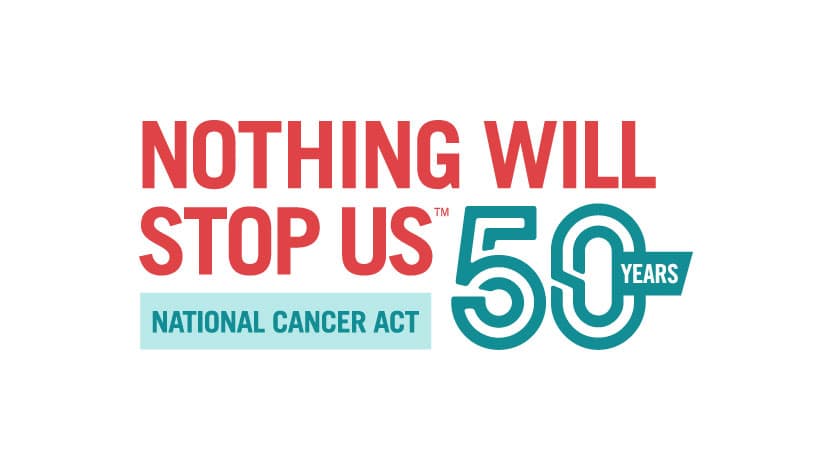The National Cancer Act turns 50

The year was 1971. The Walt Disney World theme park opened. NASA’s Apollo 14 took the third successful manned trip to the moon. Intel released the world’s first microprocessor. And cancer was a leading cause of death in the United States.
Cases of cancer were on the rise, and most Americans considered the disease a major health concern. Science offered a way to cope with cancer through the development of new treatment and prevention methods. However, despite some advances in the biomedical sciences that provided leads, there was no coordinated effort to study the disease. Then, a single piece of legislation promised to change the course of cancer research and care.
The National Cancer Act, signed into law by President Richard Nixon in 1971, greatly bolstered the nation’s capacity to address cancer and its many challenges. This broad legislation gave new authority to the National Cancer Institute (NCI) and provided the infrastructure and mechanisms needed for a large-scale, world-class cancer research enterprise. It also represented a national commitment to what President Nixon described as the “war on cancer.”
The National Cancer Act allowed the NCI to establish networks of cancer centers, clinical trials, data collection systems and advanced research.
The University of Chicago has been home to an NCI-designated cancer center since 1973.
Among numerous other accomplishments, the National Cancer Act established NCI’s Cancer Centers Program. Within these centers, multidisciplinary teams deliver leading-edge treatments, breakthrough research, clinical trials and state-of-the-art treatment facilities to all Americans, including many underserved communities. Not surprisingly, studies show patients treated at NCI-designated cancer centers have higher survival and recovery rates overall.
Every year, approximately 250,000 people receive their cancer diagnosis at an NCI center and even more receive treatment at one. But what makes these centers all the more remarkable are the thousands of patients enrolled in potentially life-saving clinical trials that have originated within the network, all led by collaborative teams of scientists, researchers and clinicians. Clinical trials are essential to developing new and more effective treatments for cancer. What started in 1971 as a network of 15 cancer care centers has now grown to 71 NCI-designated centers in 36 states and the District of Columbia. The University of Chicago has been home to an NCI-designated cancer center since 1973. Today, the University of Chicago Medicine Comprehensive Cancer Center is one of only two such centers in the state of Illinois.
The National Cancer Act has had a remarkable and long-lasting impact on the approaches to prevent, diagnose, study, treat and cure cancer. The proof is the steady decline of overall cancer death rates each year and the approximately 17 million cancer survivors alive in the U.S. today.
The 50th anniversary of the National Cancer Act presents the opportunity to commemorate all of the exciting developments in cancer that have happened up to this point. The NCI and others across the cancer community are spreading the word with a campaign dubbed “Nothing Will Stop Us.”
Besides commemorating the signing of the National Cancer Act, the campaign will tell the stories of the changemakers and trailblazers who are behind the scientific advances enabled by the 1971 act—including many who were from the University of Chicago.
In addition, because cancer is still not defeated and many challenges remain, “Nothing Will Stop Us” points to the promise of what’s to come.
Learn more about UChicago Medicine's legacy of excellence in cancer research.
